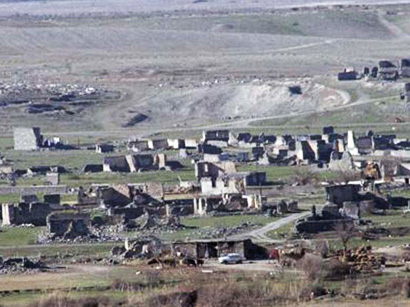Who hinders long-lasting peace in Karabakh?

A long-lasting Nagorno-Karabakh conflict in the South Caucasus region has contributed to a widening volatility gap that is leaving many people in danger, even those who are out of direct impact of the conflict. But one promising solution offers hope throughout the region: a fair resolution to the conflict.
Nowadays, the world’s top states seem to understand the necessity of solving the Armenian-Azerbaijani conflict, which with every ceasefire violation threatens to reignite a military conflict between the countries and destabilize the South Caucasus region.
Nagorno-Karabakh, located at the seam of Europe, Russia, Iran and Turkey, has the potential to destabilize the entire Caucasus region. There is no denying that the conflict has far-reaching negative effects, including on energy security of Europe, since Azerbaijan is a significant player and initiator of the huge energy projects.
The hot spot in the South Caucasus region cannot only be a headache for Europe, but also close neighbors such as Russia, which has close ties with the conflict parties. No country would love to see a military conflict close to its borders, and Russia is no exception.
Immediately following the unprecedented flare-up in fighting along the line of contact in early April, Russia filled a diplomatic vacuum left by other world powers and brokered a ceasefire. Few days later of the fighting, the sides agreed to a truce in Moscow at a trilateral meeting between the Russian, Armenian and Azerbaijani army chiefs. Days later, the Russian foreign minister and prime minister were in Baku and Yerevan.
Now, an intensive phase of negotiations on the settlement of the conflict in the Nagorno-Karabakh region may begin in the coming days, as the presidents of Azerbaijan and Armenia agreed earlier in Vienna.
Kremlin has announced that a trilateral meeting of Azerbaijani, Armenian and Russian presidents is possible in St. Petersburg. "The work on this issue is underway. We don't rule out that such meetings will be held," Russian president's spokesperson Dmitry Peskov told reporters last week. "If it is confirmed finally, we will give information."
Moscow’s energetic diplomacy was assessed by many observers and diplomats as a move to strengthen its positions in the region. However, the world powers also admitted that the giant northern neighbor can play a key role in the conflict resolution given its leverages.
Earlier, the Secretary General of the OSCE Lamberto Zannier and most recently German Chancellor Angela Merkel said that Russia can play a key role in the conflict resolution.
Russia's contribution to resolving the long lasting conflict will bring results and create conditions for a new phase of negotiations that will be much more constructive than previous talks, Zannier said on April 8.
Germany, said the Chancellor, would like to do its bit within the scope of the OSCE Presidency to resolve the conflict peacefully. It is not only a question of respecting the ceasefire, she said, but of making progress with the political process.
“The current situation is not favorable, since the conflict could flare up again at any time. Russia will play a crucial part in resolving the Nagorno-Karabakh conflict,” Merkel said.
Azerbaijani President Ilham Aliyev, who was in Berlin at talks with Merkel, has said he wants a peaceful resolution to the conflict over, warning that the truce is fragile and a strong solution is needed.
"Recent developments in the region on the line of conflict show the ceasefire is not stable, it is fragile," Aliyev told a press conference with German Chancellor Angela Merkel in Berlin on June 7. "The status quo is not acceptable."
Nonetheless, Yerevan still seems true to its non-constructive position in talks. At the time when the world powers intensified efforts for brokering a lasting peace Armenia shows disrespect to the talks.
Following the Vienna meeting of May 16, the Armenian leadership made irrational statements, mostly misinterpreting the essence of the peace talks.
Now at time when Moscow has gone into diplomatic overdrive to bring the parties together the Sargsyan regime stages double diplomacy and confronts to even bilateral agreements with Moscow.
--
Follow us on Twitter @AzerNewsAz
